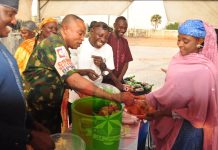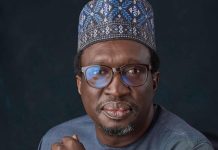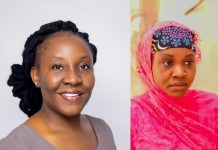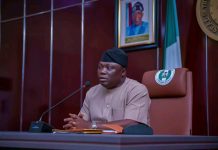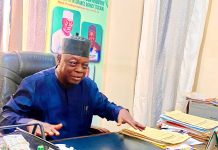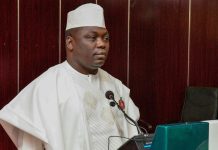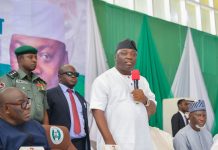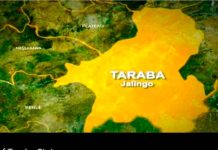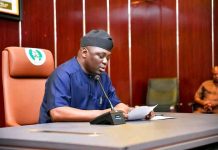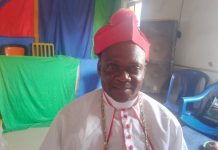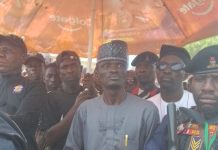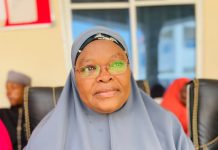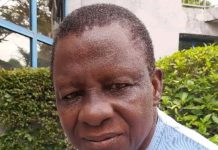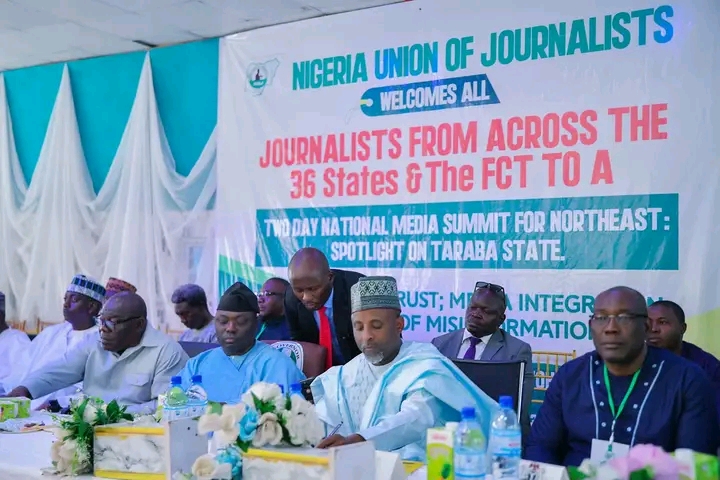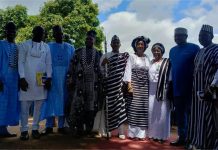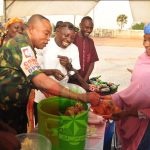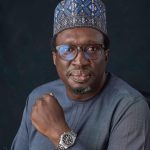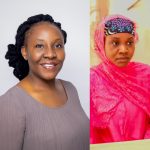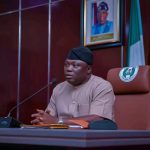Nigeria needs a ‘green new deal’: Here is how to get it
By Johnathan M Feldman and Anthony Bature
“A functioning, robust democracy requires a healthy educated, participatory followership, and an educated, morally grounded leadership” — Chinua Achebe
The Barriers to Community Wealth
In the opening quote, Achebe shows how mobilisation of the population, based on education and a moral code, can lead to the advancement of democracy. We need to build on this formula to show how Nigeria can address its multiple challenges in a way that leads to systemic and inclusive change. Let us start with the problems.
Nigeria suffers from poverty and extensive unemployment, particularly with younger workers. Unemployment reached 33% in the fourth quarter of 2020. In 2022, Nigeria was ranked 162nd in the Environmental Performance Index developed by Yale and Columbia universities.
The country suffers from growing deforestation, which compounds the threats associated with global warming. Nigeria was also ranked 107th in the Economist Intelligence Unit’s 2021 democracy ranking. The country was ranked 154th out of 180 countries in Transparency International’s Corruption Perception Index.
Nigeria has suffered from security problems because of intra-ethnic conflicts related in part to the distribution of oil wealth and underdevelopment, with some turning to violence as a vehicle for advancing claims or grievances. Cyril Obi, a Nigerian scholar presently at the Social Science Research Council in New York has explained key facets of these problems in a 2009 contribution to the journal Africa Development. Obi explains: “Oil pollution, extreme poverty, high levels of youth unemployment, pollution, perceived discriminatory employment practices against locals by oil companies and socioeconomic and political marginalisation and neglect by successive administrations constitute the main grievances against the oil companies and the government.” A key source of conflict and inequality is the transfer of wealth from local communities to national and global actors.
The youth unemployment problem has turned into a security issue. Many educated Nigerian youths cannot find a job to secure their future or even meet their day-to-day needs. Unemployment has driven millions of Nigerian youths into anti-social activities like kidnapping, banditry, internet defrauding, drugs, human and child trafficking, and cultism. A vast number of these youth are used as thugs by politicians during the elections at various levels of politicking.
Women as a group face their own problems. Taiwo Ajala, at the Faculty of Law, at Lagos State University, focuses on the barriers to equitable economic development tied to gender discrimination in land ownership in the country. She argues in the International Journal of Discrimination and the Law that access to such ownership “constitutes a major source and means of wealth creation and economic empowerment.” In contrast, the unequal and inaccessible arrangements governing land distribution have led to poverty. Land is a critical resource for developing agriculture, gaining capital or serving as collateral security for business start-ups.
Given these vast economic, environmental, democracy and governance problems, Nigerians need a way to support comprehensive change, meaning change that responds simultaneously to these multiple problems. Any reforms must reach and aid millions of persons. Given ecological tipping points and multiple crises, “comprehensive” must mean changes that can be scaled up and solve problems sooner rather than later. Comprehensive change must be broad, have extensive reach, and fast.
The barriers to change are rooted in how we organize economic, political and cultural resources. Change might come from social movements, but these often lack an entrepreneurial or economic aspect. We need a way to combine the dynamic aspect of community activism and the system-changing aspects of innovation. We need to link democracy and innovation in popular mobilisation. Such a mobilisation is possible because many young persons in Nigeria have the energy and enthusiasm to make their nation a better place in terms of growth and development.
Nigeria has many assets that could promote such a mobilisation. As a country of more than 200 million persons, Nigeria represents a huge market for goods and services in Africa, if not the world. A central issue is how we can link this market potential to investments and systems of accumulation that produce jobs, wealth and sustainable outcomes through green manufacturing and diversification of the energy and forestry sectors.
There are several barriers to converting market potential into jobs and green growth. First, Nigeria has a systemic problem of corruption which drains government procurement possibilities and the viability of businesses. Second, Nigeria is subject to global economic pressures, with increasing imports from China and efficient and low-cost foreign producers. Third, a vicious cycle of security crises and increased military spending depletes the civilian and ecological budget.
Fourth, forests have been pillaged for energy and short-term gains, as employment and energy alternatives are lacking. Fifth, the financial system has rewarded the oil industry at the expense of the manufacturing and agricultural sectors as explained recently by Richard E. Itaman at Kings College and the University of Johannesburg and Oluwafemi E. Awopegba at the Nigerian Institute of Social and Economic Research. Finally, various forms of plundering from bunkering or stealing oil, illegal foresting and corruption by criminal actors rob the country’s wealth.
Overcoming Barriers to Community Wealth: Nigerian Leaders and Leveraging Foreign Capacities
How then do we overcome these various barriers? A key solution is to build up regional networks where the economy is run by local communities who work with others to develop innovations and diversification (or new business) opportunities in two critical areas. The key goal is to leverage national and global resources to advance local needs (a reverse of the process identified by Obi in which localities end up advancing national and global interests at the expense of community interests).
In other words, we need to start somewhere and that somewhere is in a local community. We propose a local project that would work towards long-term solutions and could be replicated throughout Nigeria to meet the needs of various regions, spread over a large territory and population. Before elaborating on how the process of expanding and replicating such a local project would work, we need to focus on some potential elements of a local project.
First, in agriculture, Abimbola Ogunwusi, one of Nigeria’s leading forestry experts, has argued that the bamboo industry is a good way to generate energy and alternatives to deforestation. Plantations developing this crop provide an alternative to plundering forests and oil resources. Kit Ling Chin at the Institute of Tropical Forestry and Forest Products in Malaysia, together with his colleagues, also identifies bamboo as having “great potential for use as a feedstock for biofuel production.” They point out that “biogas can be employed as a fuel for engines, gas turbines, cells, boilers, and industrial heaters, and as a feedstock for chemical manufacture.”
This cleaner form of energy is needed to promote a “high-income economy.” Like Ogunwusi, Chin and colleagues identify residues from sawmills as an additional source of bioenergy. Dr Jubril Atanda, a scholar based at Cyprus International University, has explored bamboo’s use as a substitute construction material in Nigeria. He argues that bamboo development not only reduces pollution but can help control erosion by creating water barriers.
Second, in alternative energy, a number of individuals and projects illustrate how Nigeria could build a domestically-anchored, solar-powered future. One foundation for such an industry is Nigeria’s Economic Sustainability Plan passed in July 2020. NSEP has supported off-grid renewable energy with $619 million in funding to install new solar panels on homes cut off from the grid. This plan was designed to stimulate locally-anchored (within Nigeria) manufacturing. Nigeria has teamed with foreign suppliers like Lumos, a Dutch-based firm, which sells self-contained solar facilities, enabling locals to put solar panels on their roofs. Foundations like the Global Innovation Fund, invest in special projects to help the poor. This has included funds to support microgrids in Africa and off-grid systems in Kenya.
The National Board for Technology Incubation is designed to support and grow small businesses, innovation and entrepreneurs throughout Nigeria. The National Agency for Science and Engineering Infrastructure, together with the Sokoto Energy Research Centre, also had a project to produce solar panels in Nigeria. The World Bank and EU have supported electrical modernisation, if not greening of energy, in funds totalling about 1.65 billion Euro.
These “top-down” initiatives need to reach local actors and communities at the base of society. An important bridge between such multinational actors and local communities is the community-minded entrepreneur. Awele Uwagwu, a graduate of the Massachusetts Institute of Technology in the United States, has joined with his Nigerian-based partner, Leke Oyefeso, to establish a start-up firm called Idagba, founded in the summer of 2020. This project aims to promote solar energy and establish a hub for solar in the whole of Nigeria. Engineers like Emmanuel O. B. Ogedengbe, a Nigerian involved in the Energhx Consulting company, has also been involved in various projects that have tried to develop alternative energy in Nigeria tied to solar cells, local vertical-axis wind turbines, and biopower tied to food waste, paper sludge or animal waste. Ogedengbe is part of various engineering networks in Canada and has links to both Nigerian and Canadian academics.
Involving such key persons is one place to start, but we need to link such persons to networks where we already have community networks and organisational resources. In the Taraba State, the Foundation for Peace, Hope and Conflict Management has many contacts who could contribute to the participatory pilot project described here. The Foundation’s work with reconciliation among ethnic and tribal religious groups has created a base of contacts and experience to advance the transformative project we need. We now explain how we can transform such activity into a comprehensive program for change.
Why Nigerians’re giving up on Nigeria -Catholic archbishop
We’re in war situation – Adeboye Building Cooperative Community Innovation Networks
The key to achieving change can come from what we call “Cooperative Community Innovation Networks”. These networks are a primary mechanism for meeting local needs by accessing national resources (as in Nigeria’s huge domestic market) or global ones (through partnerships with foreign-based scholars, engineers and firms). Our proposals relate to what Laura Pereira and colleagues at the Stockholm Resilience Centre refer to as “transformative spaces.” These “allow and enable dialogue, reflection and reflexive learning, while reframing issues in ways that allow solutions—or at the very least, attempts to experiment and transform—to be co-created and co-realised.” These spaces “operate as stepping stones for Social-Ecological System transformations that are attentive to the specifics of the context in which the space is being convened.” We complement this idea by focusing on how to create hubs for accumulating various forms of media, economic and political power tied to design, innovation, and production and consumption, to build wealth and social justice. Here are the key components of CCIN.
First, a key set of innovators are accessed who have local and foreign-based capacities to develop the new product, e.g. solar-powered systems. In some cases, a key bridge to technical knowledge can come from skills exchanges between universities in Nigeria and others in the Global North or even a cooperative federation of African engineers promoting alternative energy.
Second, various constituencies tied to environmental, labour, business, engineering, religious, and university constituencies and capacities form a working group. The working group is based on the joint cooperative gains that come from creating jobs, reducing the carbon footprint, and advancing domestically-based wealth. This means that over time, foreign-based knowledge and services in support of innovation are gradually replaced by domestically-based equivalents.
This kind of “import substitution” process is what led the Chinese and South Koreans to develop their own high-speed trains using designs and technology initially acquired from foreign suppliers outside their countries. The promise of a large domestic market must be leveraged over time to build Nigeria’s own capacities and production. Universities also have diverse capacities to support systemic ecological transformation.
Oluwatunmise Paimo, a Nigerian scholar currently affiliated with Stockholm University who has taught at Crescent University in Ogun State, argues that during the Covid-19 crisis Christians and Muslim societies cooperated extensively in prayer initiatives towards an end to the ongoing pandemic. She also argues that any change project must involve traditional leaders and worshipers, as they represent key supporters to developmental projects.
Third, a working group representing diverse constituencies together with community organisers and activists must organize and federate local and institutional purchasers and consumers who become the end users of alternative energy solutions. The community, linking needs-based interests and local groups, becomes the bridge to the capacities found in both the market and state. The purchasing power of local government, institutional and organized consumers can be used to create businesses without the intermediary involvement of large oil companies, transnational corporations, and others who limit community wealth.
This purchasing power can be used to expand if not create cooperatives. The Cleveland Model in the United States and the Preston Model in the United Kingdom have illustrated how these processes can work very successfully. Other models, like the former Greater London Enterprise Board and Dutch Science Shops, illustrate how networks of engineers and university-based technical personnel can advance various local alternative energy schemes. Paimo says that local, state, and federal governments must each be involved and can be won over if projects provide benefits to local constituencies.
The efforts of Uwagwu, Oyefeso and Ogedengbe discussed above illustrate how foreign-based technology can be accessed by Nigerians to develop local, Nigerian-based innovation through CCINs. Such engineering entrepreneurs need to be linked to community corporations that further anchor investment, jobs and wealth, and are linked to a self-governance, local regulation and oversight system which prevents corruption and build upon and sustains a civic-minded, community ethos.
The first phase to build Cooperative Community Innovation Networks is to create a feasibility plan which examines local needs and what can and should be produced. Our initial belief is that bamboo and solar projects represent excellent starting points for such a discussion. A small-scale solar system, such as a system for charging phones or powering lights, could become a popular item that generates revenues for innovation by building on Nigeria’s multi-million population of consumers.
Ultimately, we need a new mechanism for organizing the innovative process to end social exclusion. Excluded groups cut off from land and other resources must organize to create innovations, these innovations in turn can create new labour markets and products which produce resources for land acquisition and further development of community wealth.
We need a sustained community dialogue that links technical knowledge about products, to the various constituencies with a stake in green and sustainable innovation. Such a dialogue will utilise study circles to assess needs and capacities in pursuit of a Green New Deal mobilisation linking ecological needs, wealth promotion and economic growth to combat scarcities. Our goal is to facilitate the studies, organizing, planning and community mobilisation to build upon the capacities of our local communities. We need to create jobs, promote sustainable growth, and develop the infrastructure services required to improve communities.
Extending the Model throughout Nigeria
We conclude by exploring how we could create a process that replicates or expands change in one local regional (tied to the pilot project we envision) to change that covers a broader geographic territory. There are several ways to achieve this.
First, we need an economic extension system. In our proposal, a pilot project can show how various capacities and constituencies are brought together in a single location. Yet, we need to franchise the local solution through network resources that are more national in scope. In the African diaspora, we have models for creating such expansionary networks through so-called “community development corporations” organised by Black churches and Black colleges in the United States.
In addition, Malcolm X and the Black Muslims created a similar system linking religious networks to small business development. In the Malcolm X case, we see how a person who became a political celebrity was tied to a religious group building black businesses. Malcolm X organised a network of about 100 mosques and thus a mechanism linking media, economic and political power. The Programme of the Organisation of Afro-American Unity, of which Malcolm X was the key principal, also called for “a technician pool” or “a bank of technicians.” The program envisioned African Americans providing technicians for African nations and thereby creating “an open market” for the skills of the former while helping Africa develop; the goal was “mutual cooperation and mutual benefit.”
In these American examples, a moral code and community ethos is directly linked to job creation and wealth generation systems. Nigerian churches and mosques can produce such comprehensive and fast change by helping extend the knowledge and resources gained in a local pilot project.
Second, Nigeria itself has a number of cooperatives which could be part of a larger system of community corporations which build and share wealth equitably, honestly and efficiently. They can support the political and economic franchises (or hubs for change extended over space and spread throughout the country) which accelerate change.
Finally, if a pilot project can successfully launch one or two products like solar chargers or bamboo production in local markets, then it might be able to expand its reach by marketing throughout the country and further growing customers and revenues. This revenue stream can be used to launch new projects and products in other Nigerian areas. This pattern of diversification and multi-product firms can be seen in both traditional production engineering companies like Siemens in Germany and in the Mondragon cooperative in Spain.
Dr Feldman is an Associate Professor at Stockholm University and Rev. Dr Bature is the Executive Director of the Foundation for Peace, Hope and Conflict Management, Nigeria.(fphcmnigeria@gmail.com fphcmngo@gmail.com)


